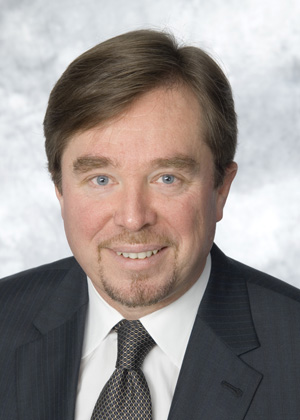OTTAWA - The Ottawa bar, not to mention the city’s political establishment, is scratching its collective head over McCarthy Tétrault LLP’s puzzling decision to wind down operations in the capital.

Although motives behind the shutdown remain mysterious, one thing is certain. As the inhabitants of McCarthys’ office on Elgin Street vacated the premises over the past two months, competing firms in Ottawa came up winners.
Two of McCarthys’ veteran Ottawa partners have joined a prominent local firm that practices litigation exclusively.
The boutique firm Cavanagh Williams became Cavanagh Williams Conway Baxter overnight, the same day the names of Tom Conway and Colin Baxter disappeared from McCarthys’ web site.
Conway and Baxter, who joined McCarthys in 1995 and 1991 respectively, took two McCarthys associates with them to their new firm. They say the move will give them greater freedom to practise litigation without the conflicting interests that often plague large firms.
“Over the last couple of years, it’s fair to say that we were somewhat frustrated,” says Conway.
“As litigators, you want to be able to take on certain kinds of mandates that don’t really fit the strategic direction of a firm like McCarthys, particularly in Ottawa where a lot of the work that Colin and I would do would have a political overtone that really wasn’t in sync with McCarthys’ vision for itself,” he adds.
Baxter adds their new shop will be a “more nimble and flexible firm that allows us to take a greater array of retainers and mandates that perhaps were not possible in a bigger firm like McCarthys.”
Conway, a Law Society of Upper Canada bencher, was McCarthys’ litigation group leader in Ottawa. His CV includes representation in some of the most high-profile disputes in the city, including a former Conservative party member who sued Prime Minister Stephen Harper for libel and took it to settlement.
Baxter, who began his career as a Supreme Court of Canada law clerk to justices Bertha Wilson and Frank Iacobucci, has an equally impressive litigation CV and is a special advocate in Canada’s ultra-secret anti-terrorism proceedings.
Another former partner at McCarthys, Barbara McIsaac, chose a lateral move to a large firm, one which apparently has no doubt about the need for a presence in the national capital.
As counsel at Borden Ladner Gervais LLP, McIsaac tells Law Times she will continue retainers and specialties that have made her one of the best-known experts in the country on privacy legislation and public and administrative law.
Currently representing Chief Electoral Officer Marc Mayrand in the battle against the Conservative Party of Canada over campaign advertising for the 2006 election, McIsaac has in the past served as senior counsel to the Somalia inquiry as well as senior counsel for the Canadian government at the Arar inquiry.
She will also continue to represent the broadcasting industry in a dispute with the Canadian Radio-television and Telecommunications Commission over annual licensing fees.
Fasken Martineau DuMoulin LLP also quickly posted three additions to its roster following the Ottawa exodus from McCarthys.
Robert Chapman joins Faskens as counsel to focus on corporate finance, securities, mergers and acquisitions, financial services, and technology law.
Anna Tosto became a Faskens partner focusing on corporate financing for the technology and transportation sectors. Virginia Schweitzer also joins the firm as a partner to continue her practice in finance, mergers and acquisitions, securities, mining law, and technology law.
Counsel and former Liberal deputy prime minister John Manley is leaving McCarthys to become CEO of the Canadian Council of Chief Executives.
The developments left only one partner in the Ottawa office as of last week - international trade specialist Brenda Swick.
McCarthys remains tight-lipped about why it decided to apparently end its presence in Canada’s capital city. Darryl Cruz, a partner and leader of the firm’s litigation group, would not even confirm the Ottawa doors will close for good.
“We’re still reviewing what we want to do in Ottawa, and I’m not sure where we’re going to end up, but we’re looking at what practices, if any, might suit our needs in Ottawa,” says Cruz.
One senior lawyer, familiar with the Ottawa scene, suggests McCarthys has likely foregone prestige and prominence on a range of national governance issues in Ottawa in favour of exclusive billing and client goals it adopted during a major strategic shift in 2001.
A book about the firm by Law Times columnist Christopher Moore, McCarthy Tétrault: Building Canada’s Premier Law Firm 1855-2005, says the aim under new chief executive officer Iain Scott was to focus the firm’s strengths on “the most promising, challenging, and profitable lines of work, and the new management team was deeply involved in defining who and what those clients and business lines should be.”

 Although motives behind the shutdown remain mysterious, one thing is certain. As the inhabitants of McCarthys’ office on Elgin Street vacated the premises over the past two months, competing firms in Ottawa came up winners.
Although motives behind the shutdown remain mysterious, one thing is certain. As the inhabitants of McCarthys’ office on Elgin Street vacated the premises over the past two months, competing firms in Ottawa came up winners.